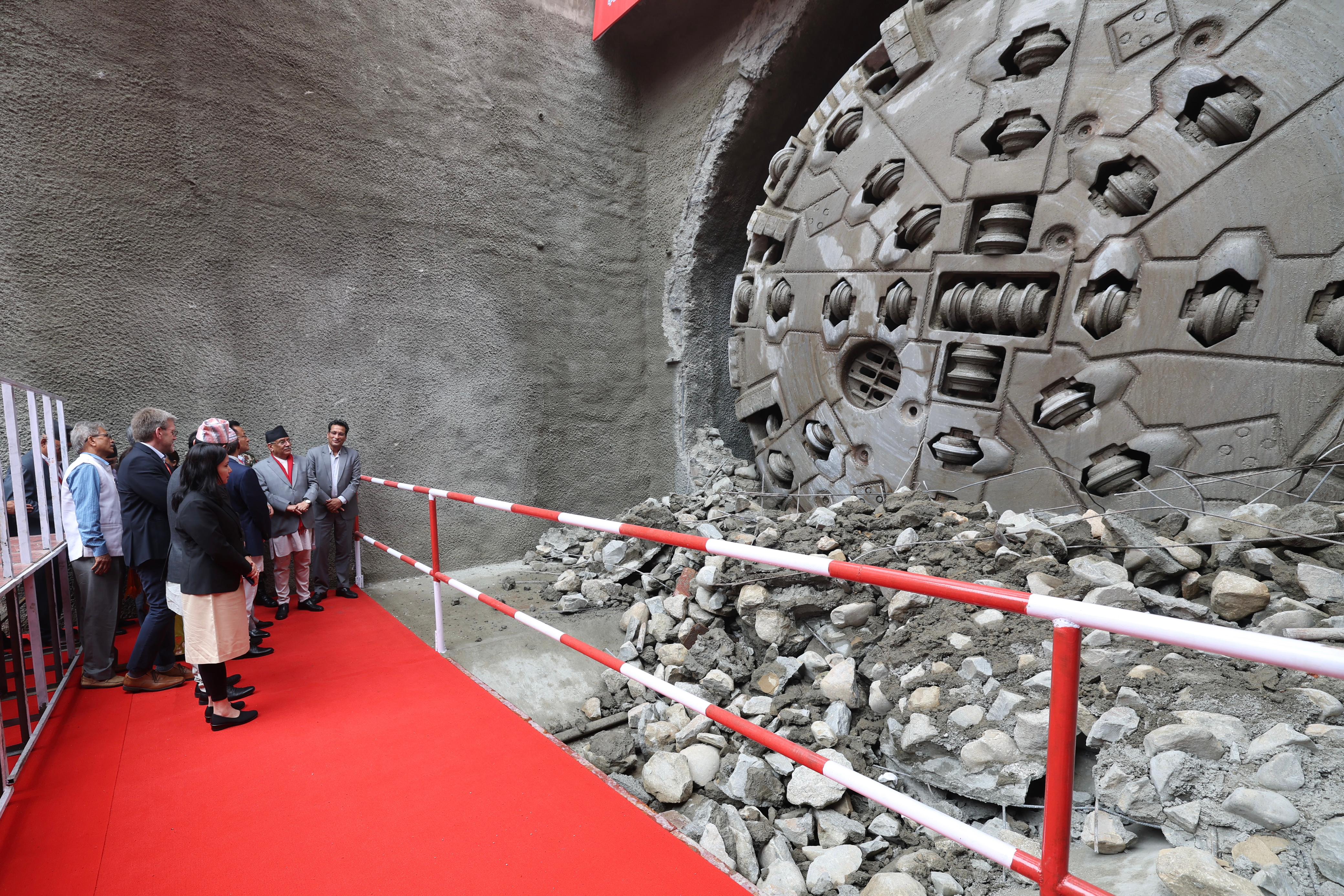Women Victims and Transitional Justice
We use Google Cloud Translation Services. Google requires we provide the following disclaimer relating to use of this service:
This service may contain translations powered by Google. Google disclaims all warranties related to the translations, expressed or implied, including any warranties of accuracy, reliability, and any implied warranties of merchantability, fitness for a particular purpose, and noninfringement.


A woman who was raped during the conflict expressed her pain in an angry voice - 'Madam, are we not going to get justice? What is the meaning of getting justice after death?' The woman who was raped in 2058 when the emergency period was imposed, is currently facing death. The government has neither time to listen to her compassionate lamentation nor any concessions for her medical treatment since 6 months.



History is a witness, as many conflicts as there have been in the world, women and children have been the victims the most. There are many examples of women being used for sexual gratification and entertainment during the First and Second World Wars. This trend is also seen in the ongoing conflicts in the current world environment. In Uganda, Rwanda, Bosnia and Herzegovina, Sierra Leone, Cambodia, Colombia, Syria, Nigeria and other countries, sexual violence and rape are very common.
Looking at the history of some wars, women's bodies have been used as weapons to win wars. What various researches have shown is that during the conflict, sexual violence or abuse against women is not only done to satisfy sexual desire, but also to show power, show hatred, and take revenge. It seems that the troops assigned by the state, the security personnel or even from the rebel groups themselves.
During the 10-year armed conflict in Nepal since February 1, 2052, women were used for the interests of both warring parties. Suraki was not only used for carrying weapons, carrying guns, cooking, but there were also many cases of sexual violence, torture and rape against women. Even though the then rebel Maoists carried out social reform activities such as campaigns against alcoholism, campaigns against sexual violence, and campaigns against exploitation of women, the participation of women in Nepal's armed conflicts is seen to be more than that of other countries. Especially after winning over women's sentiments, there are scattered examples of taking help from them for lunch and food for their workers. As this tactic of guerrilla warfare is popular in the world, it seems that the then Maoists also adopted it.
Women seem to suffer from conflict in three ways. First, lost family and relatives. Second, women who are directly involved in the conflict and are neglected in social rehabilitation and third, victims of sexual violence. This article focuses on transitional justice issues regarding sexual violence and rape of women.
The exact number of women victims of sexual violence and rape during the conflict has not yet been established. Out of the 62,950 complaints filed in the Truth and Reconciliation Commission formed in 2071, only 322 complaints were filed by victims related to such incidents. Which is very low from a numerical point of view. Due to social ostracism, fear of being ostracized from the family, lack of evidence and threats of perpetrators, disbelief in getting justice, victimized women do not dare to file a complaint and speak openly about the matter. The tendency to hide the incident and to live in despair is not only seen in the conflict-affected women of Nepal, but it is a common problem of the victims of conflict in the world. Although extensive research and reports have been prepared on other serious human rights violations during the conflict, data and studies on sexual violence are relatively rare.
Transitional justice in the case of victims
Transitional judicial concept has been developed by realizing the need for a special type of legal mechanism to address issues related to violations of human rights and humanitarian laws in the past in order to establish sustainable peace in countries that are moving from armed conflict, military rule or dictatorship to a peace process or democratic system. The tenure of which is not permanent like that of a normal court. The Transitional Mechanism, which is formed for a certain period of time and with a specific purpose, provides for investigation of truth, justice, reparation, reconciliation, amnesty and prosecution of cases of serious nature.
Transitional mechanisms are tasked with providing recommendations for institutional reform and commitment to prevent the recurrence of past incidents. In Nepal, with the same purpose, a transitional mechanism was established on January 27, 2071, according to the Commission for Investigation, Truth and Reconciliation Act, 2071. who are currently without office bearers. Section 17 (6) of the Act states that the Commission can make separate arrangements for women victims. According to this, the Commission had started work by authorizing a special type of policy for women victims of rape and sexual violence. In the guidelines and procedures prepared by the
commission, there are points such as taking maximum care of sensitivity and confidentiality, using disciplined behavior, using polite language and not asking any questions that may offend the self-esteem while communicating with the victim. In the investigation guidelines, the investigation process of complaints of such victims has been given first priority. The commission took the complaints of sexual violence and rape seriously and started an investigation to create an environment where women can get justice. A woman expert was made mandatory in the three-member investigation officer appointed by the commission.
The women experts appointed for all seven provinces had started to take the victim's bank papers with utmost confidentiality. For the wishes and comfort of the victims, a separate investigation room was arranged in the provincial office and the initial investigation process was carried forward. Because of the victim-friendly environment provided by the commission, the women victims of sexual violence and rape not only filed complaints with the commission, but also started filing complaints by coming to the Mukam office. But that process is now on hold.
Legal Complexity
Section 2 (j) of the Commission Act defines rape as a violation of human rights of a serious nature. Section 26 has a clear provision in the Act that pardon cannot be granted in cases of rape. In its judgment on February 14, 2071, the Supreme Court has mandated that according to international law, amnesty cannot be granted in cases of human rights violations of a serious nature such as rape. It should recommend legal action against the perpetrators of rape. But in the current Criminal Code Act, section 219 of the crime related to rape has been said to be 'forced' and the word 'rape' is not mentioned anywhere even in its explanation.
There is a possibility that a legal gap may arise in the judicial process of the victims of such incidents during the conflict in the coming days. Therefore, it is essential to make it clear that rape is under coercion in the Act of the Commission, which is currently under revision. In the statute of limitations in Article 229 of criminal offences, it is mentioned that the victims of such incidents should file a complaint within one year, which is not sufficient in the case of conflict-related incidents. Therefore, it should be clearly stated that the statute of limitations should not apply to the transitional judicial process.
Since Nepal is a party to the International Human Rights Treaty and has signed 6 related treaties during the conflict period, it is the responsibility of the government of Nepal to protect the human rights of citizens in any situation, be it a past conflict or a peace situation. Both international human rights law and international humanitarian law prohibit acts of sexual violence in times of peace and conflict.
Humanitarian law prohibits rape, sexual slavery, forced prostitution, impregnation, forced abortion, sterilization, assault, mutilation and other forms of sexual violence of a similar nature. Therefore, it is necessary to pay attention to the issues mentioned here in the Bill on Transitional Justice currently under consideration in the Parliament's Law, Justice and Human Rights Committee. It is sad that even the women MPs in the committee and sub-committee show indifference towards the victims. In addition to this, it is essential to place women victims of sexual violence and rape during the conflict as the first priority in the provision of compensation.
As the Transitional Justice Bill is pending in the Parliament, the hope of the victims is dying when they will get justice and compensation. Peace reigned in the country, political changes took place, many women became leaders, but the women who suffered heinous torture and violence from the warring parties and the state have not yet received justice or any compensation. It is said that getting justice late is like not getting justice at all. That's why the above-mentioned victim's voice mixed with pain is still echoing in my ears - 'What is the meaning of getting justice after death?'
– Jha is a former member of the Truth and Reconciliation Commission.
प्रकाशित : चैत्र १६, २०८० ०८:१५

 २३.१२°C काठमाडौं
२३.१२°C काठमाडौं















